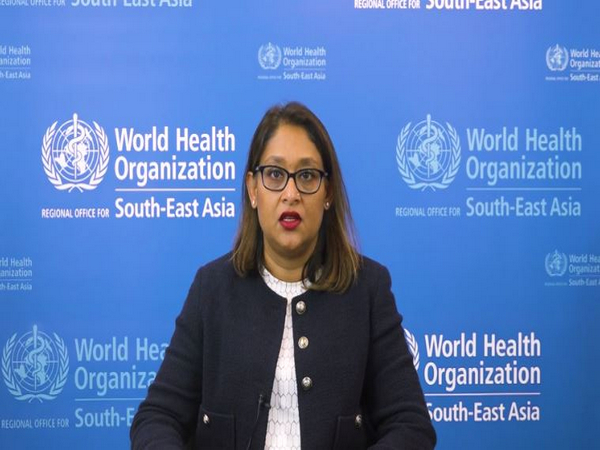
New Delhi: World Health Organisation South-Asia Director Saima Wazed called on the member states to raise awareness and take action against the alarming situation of congenital anomalies being reported in the region.
She also highlighted focus areas, where the member states need to take action to tackle the alarming situation.
"The World Health Organization is shining a spotlight on the urgent need for member states and partners to raise awareness about birth defects and intensify efforts to prevent, detect, and manage these congenital anomalies that affect lives even before they begin," Samia Wazed said in a statement.
"Thus today we remind ourselves that 'Every journey matters' and that the journey to good health begins before birth," she added.
She said that children born with birth defects are not just statistics, but represent the "loss of precious lives" and the "anguish and struggle of families."
"I am heartened that the regional implementation guidance on universal newborn screening of three conditions is being released to facilitate capacity building of member states. The three conditions are hearing impairment, eye abnormalities and neonatal jaundice," she said.
The WHO South-East Asia Director stated that around 300 children under the age of 5 years lose their lives to birth defects each day in the region, and the situation demands immediate attention and action.
She said that the situation can be prevented by tackling exposure to pollutants, lifestyle choices, and socioeconomic conditions affecting pregnant women and their unborn children.
"It was after the World Health Assembly resolution on Birth Defects in 2010, that our WHO South-East Asia Region, in collaboration with CDC-USA, initiated a holistic initiative on birth defects. An integrated approach was adopted, embedding interventions for the prevention and treatment of birth defects within existing national health programs," Wazed added.
Stating that the work is far from over, she called the member states for action in five key areas.
She said that it is crucial to elevate the priority of birth defects on national agendas and bolster commitment and leadership at all levels. Financial resources must be allocated commensurately to support comprehensive prevention and management strategies.
She also pointed out that the new regional document and videos on universal new-born screening of three conditions provides guidance on how simple tests can be integrated within existing health systems. The introduction of these tests should be supported by effective systems for referral, diagnosis, management and follow-up.
The WHO South-Asia Director said, "We must focus on improving coverage and quality of preventive interventions, such as rubella immunization and food fortification. These efforts are critical in reducing the incidence of birth defects and ensuring healthier outcomes for mothers and their babies. Member States need to plan, implement and monitor large scale food fortification programmes aligned with the 76th World Health Assembly Resolution 76.19 passed last year on food fortification."
She said that the member states must harness the power of community-based networks and organizations to support parents, caregivers, and families of children with birth defects. Empowering them to access essential services and support is essential in ensuring no one is left behind.
She further called on to sustain and expand surveillance efforts to improve the coverage and quality of quality of data collection and analysis. This data will be invaluable in guiding our efforts, mobilising resources, and improving program implementation.
"Today, let us reaffirm our commitment to accelerate actions to prevent, detect and manage these conditions. This commitment of ours is aligned with the "survive, thrive and transform" agenda of the Global Strategy for Women's, Children's and Adolescents' Health (2016-2030). On World Birth Defects Day, let us remember that every journey matters, and let us ensure a brighter and healthier future for all," Saima Wazed said.